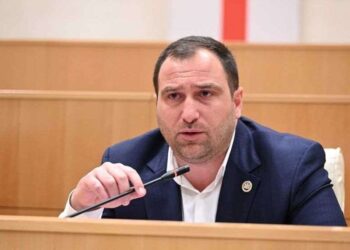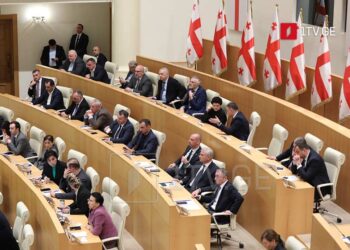As the pro-government media outlet ‘Caliber’ reports, Azerbaijan could reconsider its policy of not supplying arms to Ukraine following recent Russian attacks on Azerbaijani-owned energy infrastructure in Ukraine.
Mentioning ‘reliable sources,’ Caliber said Baku might ‘begin considering’ lifting the embargo “if Russia continues its aggressive policy against Azerbaijan’s interests.” The outlet claimed that “the Russian armed forces have begun systematically striking Azerbaijan’s energy facilities on Ukrainian territory. This situation forces Baku to take retaliatory measures. All of this will inevitably lead to a further deepening of the crisis in bilateral relations.”
Tensions between Baku and Moscow have been deteriorating since the 25 December crash of an Azerbaijani Airlines (AZAL) flight between Baku and Grozny in Aktau, Kazakhstan.
Since Russia’s full-scale invasion of Ukraine in 2022, Azerbaijan has provided more than $40 million in humanitarian aid but has officially avoided supplying weapons. In April 2024, President Ilham Aliyev told an international forum, “Even if we are asked, we do not give weapons to Ukraine, we can say this openly, we will not. Humanitarian aid, yes, weapons, no. That is my answer.”
Aliyev at the time called the conflict “a great tragedy for two nations that are very close to each other ethnically and religiously” and argued that there was a chance to avoid war if Ukraine had previously established normal relations with Russia. However, his stance appeared to shift in July 2025, when speaking in Stepanakert (Khankendi), Aliyev told Ukrainians to “never come to terms with the occupation.”
On Monday, Aliyev signed a decree allocating $2 million in aid to Ukraine’s energy sector, to purchase and deliver Azerbaijani-made electrical equipment. The move followed a call with Ukrainian President Volodymyr Zelenskyi, during which the leaders “condemned the deliberate airstrikes by Russia on an oil storage facility owned by Azerbaijan’s SOCAR in Ukraine, as well as other Azerbaijani facilities and a gas compressor station transporting Azerbaijani gas to Ukraine.”
The most recent attack occurred on 6 August in Odesa Oblast where a compressor station near the Ukrainian–Romanian border was struck. Ukrainian Energy Minister Svitlana Hrynchuk explained, “This compressor station was involved in the route connecting Greek LNG terminals with Ukrainian gas storage facilities via the Trans-Balkan gas pipeline, through which LNG from the US and test volumes of Azerbaijani gas were already supplied.” She called it “a clear and understandable signal for all of Europe, which plans to completely abandon Russian natural gas in 2027.”














